It was whilst researching a separate piece on trends in gaming (to follow) that I got sidetracked by the evolution of video game controllers. Thanks to Wikipedia, Flickr and a host of diligently maintained fan-sites, I was able to piece together the below pictorial history of how gaming input devices have evolved over the years. It's far from comprehensive; instead it aims to capture the seminal products which were truly game-changing, either by delivering genuine innovation or by taking an innovation mainstream.
(Also viewable as a presentation on SlideShare)
PDP-1 / Spacewar! (1960)
Photo: Marcin Wichary
Galaxy Game (1971)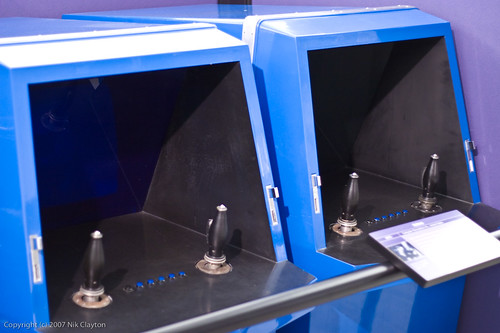
Photo: Nik Clayton
Magnavox Odyssey (1972)
Photo: Thomas Becker
Atari 2600 Joystick (1977)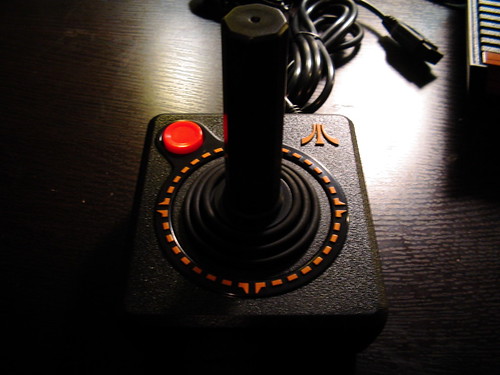
Photo: Bill Bradford
Intellivision (1979)
Photo: Brandy Shaul
Atari Football Trakball (1979)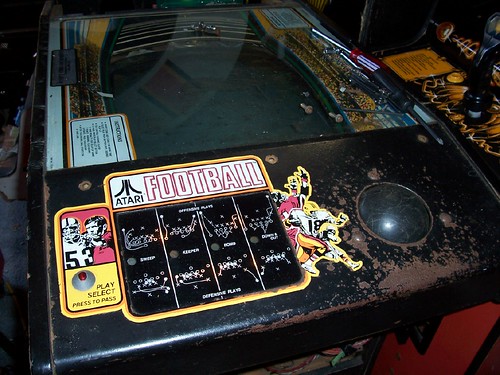
Photo: Steve Port
NES Controller (1983)
Photo: TenThirtyNine
NES Zapper (1984)
Photo: Pablo Noel
Nintendo Powerglove (1989)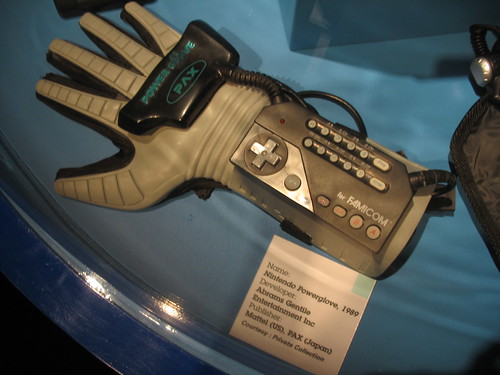
Photo: Peter M
N64 Controller (1996)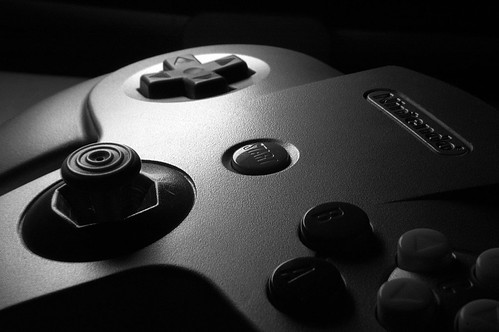
Photo: Jeffy Can
Dance Dance Revolution (1998)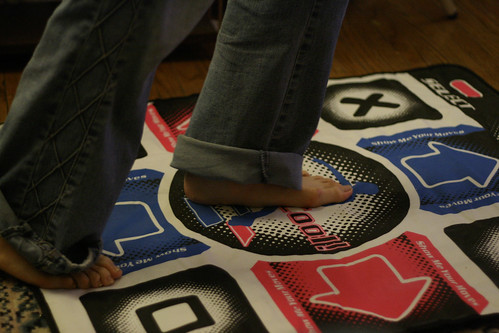
Photo: Richard Eriksson
EyeToy (2003)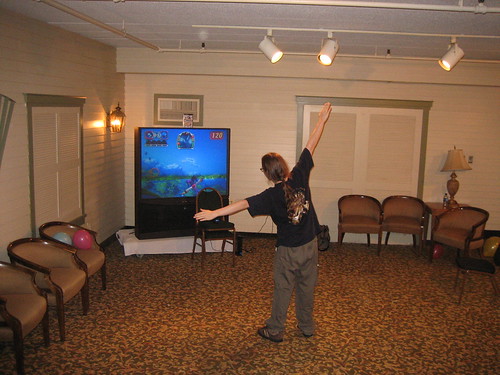
Photo: Charles Ulrich
Nintendo DS (2004)
Photo: Jo Carter
Buzz! (2005)
Photo: Damien du Toit
Guitar Hero (2005)
Photo: Hunter Wilson
Bodypad (2005)
Photo: Oncle Tom
Wiimote (2006)
Photo: Greg Turner
Novint Falcon (2007)
Photo: Jon Jordan
Wii Balance Board (2008)
Photo: Natalie Johnson
CamSpace (2008)
Photo: Scott F
Monday, July 07, 2008
A visual history of the evolution of video game controllers
Posted by Dan Taylor at 9:34 AM
Labels: design, gaming, technology
Subscribe to:
Post Comments (Atom)








6 comments:
Lovely presentation, and a great roundup.
A couple of new inventions, currently just on the horizon, include the NIA (Neural Impulse Actuator) and the Emotiv EPOC headet. Both look interesting.
Thanks Roo. I sense a new category of gaming on the horizon - a cross between Brain Training and WiiFit - BrainFit! ;-)
Or maybe WiiBrain has a better ring to it...
WiiBrain works well. Braiin? Brainii? :-)
Here is what is next:
http://emotiv.com/INDS_3/inds_3.html
What about the Spaceorb ???
http://www.planethardware.com/spaceorb/
Post a Comment